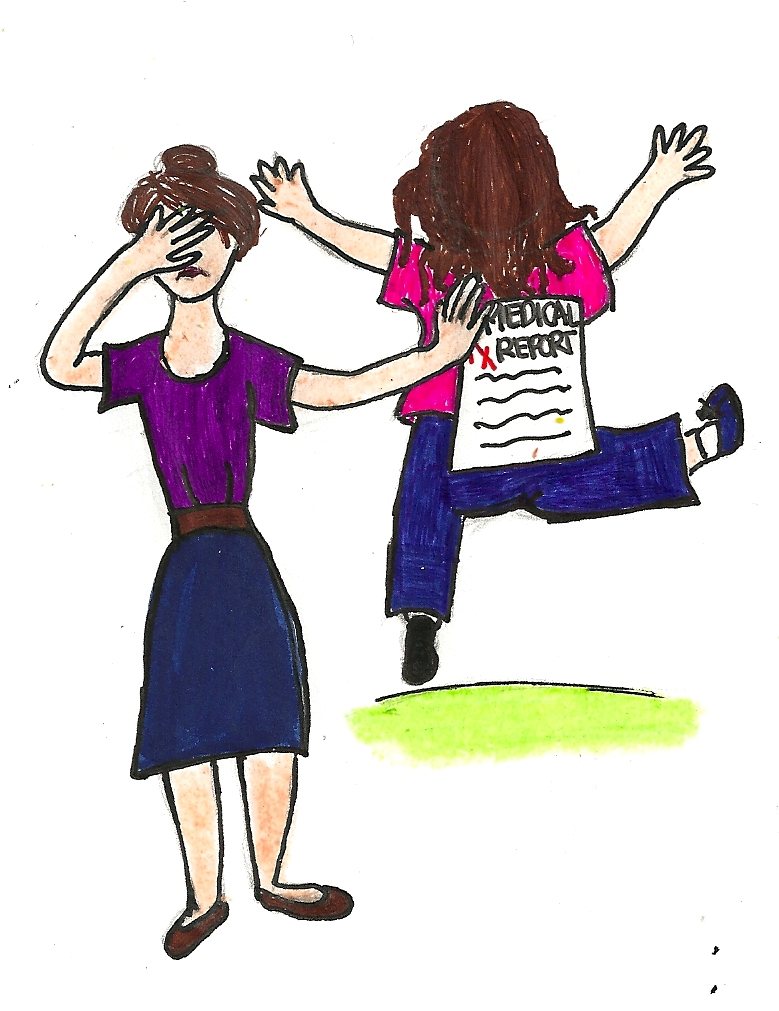As a child, my punishments for misbehaving might have included a severe tongue-lashing. But for the children of today, punishments can be very different ““ misbehaving can now result in a trip to the doctor and the fear of some mental disorder.
Recently, the Los Angeles Times featured an article about a mother consulting numerous therapists and doctors regarding her daughter’s behavior, convinced that her child was suffering from some mental ailment.
Her daughter suffered from tantrums, an action that some doctors and researchers believe to be perfectly normal.
Mental disorders have become so common in our society, having replaced demonic possession as the most popular explanation for a child’s behavior.
People have become accustomed to self diagnoses, classifying themselves and others as having mental disorders even though medical consultation may disprove it.
A 2007 study in the Archives of General Psychiatry showed that the number of children diagnosed for bipolar disorder increased from fewer than 200,000 in 1995 to 800,000 in 2003.
The rapid increase in children diagnosed with the disease along with other mental disorders has warranted the attention of critics who say these disorders have simply become a fad diagnoses.
Yet the simple notion that individuals are so quick to believe they have a problem in the first place depict how hypochondriac our culture has become.
Terms like bipolar and schizophrenia are being used so casually now that nearly anyone can be categorized as under some disorder or another.
Self diagnosis sites like Web MD make it easy for students and parents to act like certified doctors.
While there is no doubt in my mind that some of these diagnoses are factual and warranted, I believe that there is a more sinister explanation for the rest.
Last spring an Opinion piece in the Daily Bruin analyzed treatment for attention deficit hyperactivity disorder at UCLA.
The ambiguous guidelines along with vague symptoms make it possible for nearly anybody to be diagnosed with ADHD, a phenomenon that UCLA Counseling and Psychological Services has sought to abolish.
Parents may believe prematurely having their child diagnosed with some form of mental disorder is beneficial, but it will only hinder them as they grow older.
Parents like the one featured in the Los Angeles Times article are seeking to create a new diagnoses in order to classify their children when they fit into no other disorder.
However, creating a new diagnosis for a mental disorder is even more controversial.
Erik Parenas, senior research scholar at the Hastings Center (a bioethics think tank) said that simple blood and genetic tests are not enough to determine what kind of disorder a child has.
It requires biological research and thorough testing, methods that take years to yield an answer.
These parents want to know the problems with their children faster than scientists can determine if the children do actually suffer from a disorder.
These calls for rushed decisions often cause children to be diagnosed under an incorrect mental disorder.
Prescribing medicine for children who do not truly suffer from such disorders is far more dangerous than having the ailment itself.
These forms of treatment induce such side effects as severe weight gain, sedation and involuntary muscle contractions ““ side effects that can be potentially disastrous for a child who is not actually inflicted by a disorder.
Skeptics claim that nearly everyone can be categorized under some disorder or another.
But the influx of those who only claim to have a disease only worsens the treatments for those who actually suffer from such diseases.
These disorders will no longer be perceived as diseases but as a social phenomenon.
